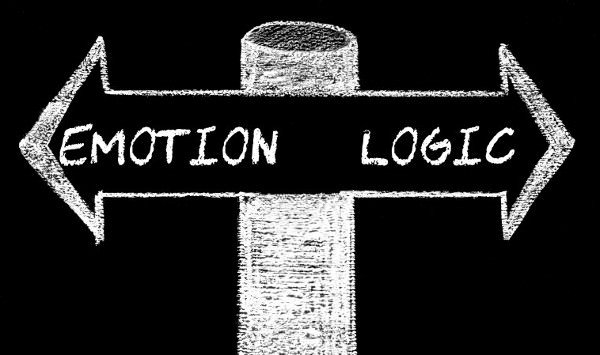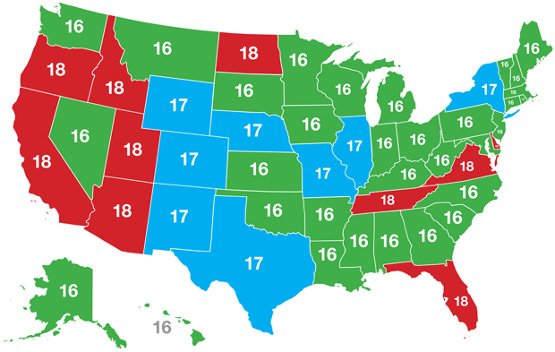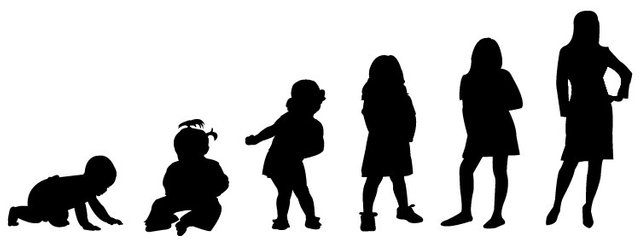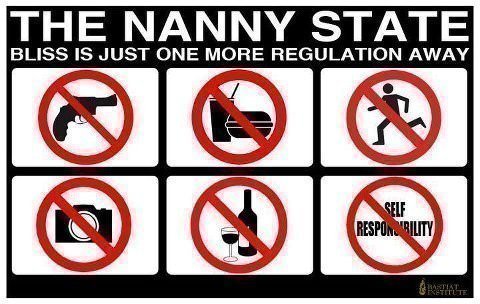Age of Consent (Part One)

The more an issue makes people angry or otherwise emotional, the more difficult it can be to have a calm, objective, intellectual discussion about it. That is just as true of me as anyone else. Nonetheless, righteous indignation that is not backed by principled moral concepts tends to cause more problems than it solves, so it’s important to be able to philosophically discuss even those issues which are the most uncomfortable, or downright infuriating.
Every now and then some libertarian expresses some opinion about “age of consent” laws, or related issues, and all hell breaks loose, because others perceive that opinion (whether accurately or not) to be some sort of justification for child molestation or pedophilia. It’s not surprising that decent human beings are quick to get angry and emotional at the thought of the most innocent among us being the victims of the most heinous crimes. I know I do. But righteous anger at evil doesn’t have to rule out rational discussion. In fact, making sure we’re very clear about what others are saying, and about what we advocate ourselves, is especially important when emotional issues are involved.
It is for that reason that I decided to post some of my own thoughts here regarding the whole concept of “age of consent.”

First of all, no, there is not some magic day in a person’s life when they instantly transform from being an utterly irresponsible imbecile to being someone who is fully capable, wise and responsible. To think that some human being one moment cannot possibly be trusted to decide for themselves when to enter a contract, or drink alcohol, or have sex, but the very next moment are completely capable of making such choices, because now it’s 12:01 a.m. on the 6,570th day of their life (or any other day), is obviously ridiculous.
While politician scribbles (“laws”) often deal in arbitrary distinctions, definitions and delineations—e.g., the exact age when some is “allowed” to drink, or “allowed” to smoke, the exact length a shotgun barrel is “allowed” to be, the exact speed someone is “allowed” to drive—actual morality rarely works that way. Some people may not like to hear this, but there are many situations in which the difference between right and wrong has to be determined, not by a line, but by a debatable gradient.
No, this doesn’t mean that morality is random and completely subjective, or that everyone’s opinion is equally valid, or that there are no real principles. It does mean that sometimes principles have to be applied to real-world scenarios in which there are “gray areas.” For example, while I agree with the principle that physical force should only be used to defend against aggression, there are times when it can be hard to say exactly what counts as aggression, and exactly what counts as defense. No, that doesn’t mean that anyone’s opinion on the matter is as good as anyone else’s. But it does mean that as individuals, sometimes we have to make judgment calls.

But if there is not an easily definable line, like an exact age, what is the general principle to be determined?
Every human being owns himself, but not every human being is competent enough to make his own choices about everything. I would not, for example, hand a loaded firearm to a small child, or to someone heavily inebriated, or to someone severely mentally retarded. And I wouldn’t do it even if they asked me to. In fact, if they had their own loaded firearm, I may very well take it from them without their permission (if I had the ability). This is not because those people don’t own themselves. It is because sometimes people are incompetent to a degree that leaving them in control of all of their own choices poses a serious threat to their own well-being and the well-being of those around them.
I can already hear the angry cries of some militant libertarians: “Oh, so you think you get to make those decisions for other people?!?!” Yes, as a matter of fact, I do. And I think you do, too. And so does everyone else. In fact, we must make such decisions on occasion, in order to protect the innocent, from their own cluelessness and from the cluelessness of others. Can that be a “slippery slope”? Of course it can. What a lot of people don’t seem to understand is that there is a big difference between saying, “Sometimes a person has to make a judgment call,” and saying, “Whatever judgment call someone makes is good.” A fine example of someone not grasping the difference is if I say that I would disarm some sloshed drunkard who is swinging a loaded shotgun around in a crowded room, and someone else replies, “Well what if you decide that everyone, including all the sober people, should be disarmed for their own good?!?”

Obviously freedom-loving people should be very cautious and reluctant when it comes to imposing their will on someone else for that person’s “own good.” But to say that you should never do that is not principled; it’s insane. For example, if your three-year-old toddler is wandering into traffic, and instead of physically stopping him, you try to use reason to persuade him to turn around, you’re a crappy parent. In that case, you should absolutely ignore what the child wants, and force your will on him by picking him up and carrying him to safety. But what if he saw a shiny penny in the road, and really wanted to go get it? Too bad. I’m still going to overrule his judgment and impose my own judgment on him instead, without his consent. And I will do that even if he is someone else’s child.
No, that doesn’t make me “authority,” nor does it make me an oppressor. “Authority” means the right to rule other people. For parents to be “authority,” for example, would mean they have the right to coercively control their children, however they want, and whenever they want. And they don’t. They are, however, stewards or caretakers of incompetent human beings, whom they either gave birth to or chose to take responsibility for, and that requires them to make certain decisions for the children. And yes, that sometimes means over-ruling the desires and decisions of the child, in order to serve the child’s best interests.

As a parent, one thought experiment I like to use is this: of the restrictions and choices that I am imposing on my own child, is it what they will later want me to have done, when they have a full understanding of the situation? For example, I’m pretty sure my adult daughter today would not be indignant and outraged at having been “oppressed” if I had stopped her from wandering into traffic when she was a toddler. And that’s about the best test I can think of: if this child had all the information, understanding and mental capacity to make her own choices for everything, what would she choose?
Another way to look at it is this: imagine, while you’re being a parent, that the future, adult version of that child is next to you the whole time, observing and commenting. Are they saying, “Good job, dad!”? Or are they saying, “What a controlling asshole you are!”? If the adult version would say the latter, you’re probably doing it wrong. Of course, since you don’t have a time machine, and since you’re only mortal, you might not always get it right. But if that’s what you’re aiming for, that’s a hell of a lot better than those parents who have the attitude of, “As long as you’re dependent on me, I own you, and can do whatever the hell I want, and it’s no one else’s business, and no one has any right to stop me.” And yes, there are parents like that. (I even talked to one a couple days ago who imagined himself to be a libertarian, which was creepy.)
So now that we’ve laid down some basic concepts and principles, using somewhat less emotional and controversial issues and contexts, PART TWO will apply these principles to the concept of “consensual sex.” That article can be found here: https://steemit.com/voluntaryism/@larkenrose/age-of-consent-part-two
(P.S. If you find value in the writings, videos, or other works of Larken Rose, or want to support the making of “The Mirror,” feel free to support his efforts by PayPal (to “[email protected]”) or Bitcoin (1MXWFg6KyDBVqNSXHBXHCpXc16DDy7QQVm), or through Patreon (https://www.patreon.com/user?u=347021).)

Although I would happily accept a subset from the state (i.e. "just leave me alone"), your very cogent article nicely explains the fundamental law of the universe - "Love your neighbor as yourself."
Treating people, competent or not, as you would want to be treated had you been in their exact situation.
Thanks, Larken, for a nice clarification. I hope you're doing well, friend.
😄😇😄

Well said. Mind if I steal that for Part Two?
Be my guest! ;)
Excellent post, Larken. You know I've been following you for some years now, and I've challenged you with some of these "slippery slope" arguments in the comments now and again on Facebook. I think it's important for liberty-loving individuals to not become "mindless ideologues" and while not sacrificing principles, recognizing the analog world of "grey" means compromises have to made and reasoned, rational arguments for them have to be built.
If we're stuck in our ideology, we end up no better than those who have caused human suffering around the world but complain, "Well, my philosophy just wasn't implemented the right way. That's the problem!"
One challenge I have for myself and for the freedom community in general is this: Do we value freedom more than we value the wellbeing it brings? Some aspects of reality can be statistically demonstrated to lower wellbeing while restricting some freedoms increases it. I think it also introduces systemic risks which eventually, over time, lead to authoritarianism, so everything should be considered in terms of time-scale as well.
I really liked this post because, to me, it demonstrated your ability to remain principled while recognizing the challenges "the real world" faces. We have to pragmatic enough to recognize reality (such as the provably undeveloped nature of children's brains). The tricky part, I think, is recognizing that some adults also have under developed brains and some adults could be labeled "crazy" and shouldn't own a weapon designed to easily kill people. That said, if we're not careful, we'll end up giving authority to those who define who is crazy and who is sane.
I don't think "well-being" is the test that matters. Morality is. For example, I could improve some people's "well-being" by coercing them into eating healthier and exercising more, but I have no such right, even if it WOULD help them.
I'd argue your coercion would be more psychologically damaging than the health benefits. Morality only exists within conscious creatures capable of well-being (and pain/suffering). Morality is given meaning because of well-being, which is a very individual thing.
When @adamkokesh came through Nashville, we had a great time hanging out and he invited me to lunch and later dinner with his team. When I challenged him with this question, he gave a great answer in that well-being can't actually be a thing unless someone has the freedom to decide what it is. Some people, as an example, are into S&M and for them being whipped increases their well-being. For others, the same activity is horrific. Voluntary consent is key because they are making free choices about their own well-being.
you made a very interesting point: "Every human being owns himself, but not every human being is competent enough to make his own choices about everything." i am curious if by that you implied only aged related restrictions or you have also something else on your mind...
Well, in the article I already used the examples of being inebriated, or mentally retarded, in addition to the age issue.
Love it! I'm keeping this post on hand for future references. I get into these arguments all of the time. People always accuse me of being a pedophile when I say age of consent laws are immoral. I give up when they go down that path as I hit the emotion button rather than the logic button.
jazernorth? Whenever someone calls you a pedophile simply for disagreeing with them on a juvenile-justice-related topic, it's indicative that they are frustrated that they are actually losing their argument against you. It's like that Gary Johnson bozo who ran for president in 2016 on the independent ticket. Every time someone disagreed with him and he couldn't think of anything to say to counter them, he'd call them a racist.
lesbo here
Very nicely explained. I liked the example of "what whould the adult version of the child say if standing next to you when you make desition to intervene in the action of the child. And that yes not everyone in every scenario is in full knowledge of the situation to best make the most right or moral decision.
There is indeed a need for everyone to realise and thus learn to take and own they're responsability for the choises they make in every situation they put themselves in. And not learn to depend on outside forces to deside for them by means of regulations. (learned helplessness)
As most voluntaryists will readily discuss, a stateless society would still have courts.
I definitely understand where you're coming from in your article here, Larken, and I believe this is compatible with my own perspective on the matter so long as the courts make no such distinction regarding competence; after all, for somebody to be in court arguing for their self-ownership, they clearly must be competent enough. When I talk about the issue, I'm talking about the legality of it. Surely within a family, even a peaceful parenting family, people will technically violate the NAP. A brother will pull his sister's hair with a smile. A mother will yank her son away from an open sewer hole. A husband will lift and carry his wife against her will. It happens, and it's generally not a big deal.What would become a big deal, however, is for the courts - and therefore the security market - to back up the use of force against a person to protect that person from his/her self. That's when this becomes a downright insidious matter. That's where you find true oppression; when the use of force to protect somebody from his/her own foolishness is not only legal, but legally backed.
Personally, I would forcibly interfere if my child were about to commit suicide. I just recognize that I would be violating the child's rights, and it cannot be a legal matter; I shouldn't be able to send the kid to a padded room over it, and if the kid wishes to sue me, that's shitty, but ultimately, my behavior wouldn't be ethical
Beautifully argued position and I think it is fairly indisputable. We see, however, issues coming up where the government is taking these decisions from families on some subjects, and enforcing somewhat arbitrary limits in others. This becomes so controversial, I believe, because of the broad spectrum of opinions on certain societal limits that we probably defaulted to some mean value for acceptability in regards to "law" vs. a family or cultural norm that might be more stringent (still obeys the law) but for those who feel that more freedom should be offered, they frustratingly find themselves on the wrong side. I can't wait for the following discussions. This is a volatile topic and you've set the stage beautifully.
Larken Rose obviously didn't do any research at all before writing these articles. He mindlessly regurgitated David Finkelhor's "informed consent" theory, which has been debunked decades ago.
But, of course, since Larken Rose didn't bother to do any research before he provided the justification for violence against pedophiles, he probably didn't even know whose words he regurgitated when he wrote this
article.
So, here is a link to four sections of the book "Taboo Zone: Scientific knowledge and ethical principles for dealing with child sexuality and pedophilia".
Section "arguments" deals with David Finkelhor's "informed consent" theory and demonstrates why it is invalid.
https://mega.nz/#F!KzwwGKpC!tTv55Be-T5OqfJIV--sgkg
Source 1
Source 2
Spamming comments is frowned upon by the community. Continued comment spamming may result in action from the cheetah bot.
More Information:
The Art of Commenting
Comment Classifications